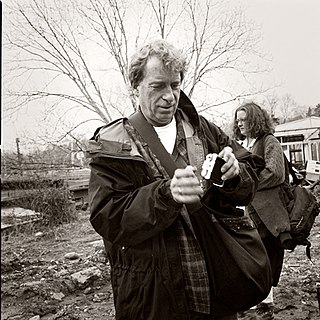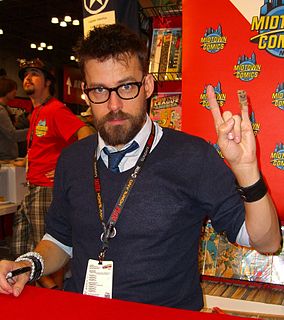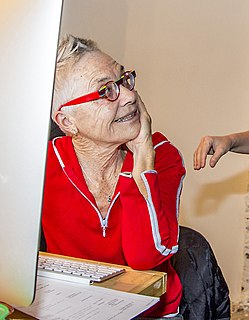A Quote by John Green
He loved the scratching of pencil against paper when he was focused: it meant something was happening.
Related Quotes
I don't understand the feeling of, the way people speak of writing as though it were, like, some kind of djinn to be summoned or like it's the Loch Ness monster or seeing a shooting star. It's a physical act. It is a thing you do with your muscles and your body and your willpower. Watch, I'll show you: get a piece of paper. Get a pencil. Put the pencil on the paper and write the word 'something.'
I was given some designer colors for ink pens a long time ago and I haven't used them, and I have some handmade paper, and I just have the desire to drip on wet paper. It reminds me of when I was seven years old and had my tonsils out, and one of the first artworks I made was on toilet paper with a colored pencil; it was sort of half paint and half colored pencil. But I got very involved with color and absorption and I think, you know, 78 is a good time to go back to the beginning.
As we crossed the Malakand Pass I saw a young girl selling oranges. She was scratching marks on a piece of paper with a pencil to account for the oranges she had sold, as she could not read or write. I took a photo of her and vowed I would do everything in my power to help educate girls just like her. This was the war I was going to fight.



































